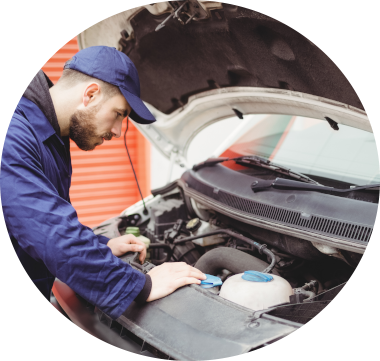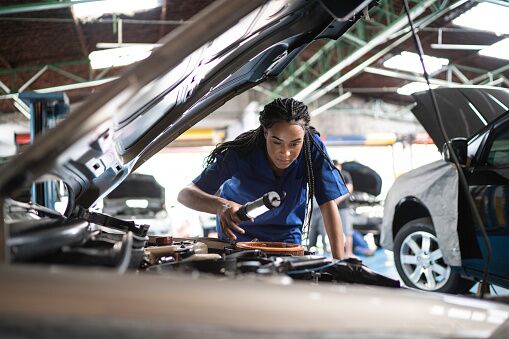All Categories
Featured
Normal engine tune-ups are vital for preserving your automobile's efficiency, boosting fuel effectiveness, and prolonging its life expectancy. Whether you're a seasoned vehicle owner or a beginner, understanding the key aspects of an engine tune-up can assist you keep your cars and truck running smoothly for years. Here are some crucial pointers to lead you through the process.
- Adjustment the Glow Plugs. Ignition system are little but magnificent components that play a critical duty in sparking the fuel-air mix in your engine. In time, they can wear or come to be fouled, leading to poor engine performance, minimized fuel efficiency, and difficult beginnings.
Throughout a tune-up, evaluate your ignition system for wear and replace them as essential. For the majority of cars, ignition system ought to be changed every 30,000 to 100,000 miles, depending upon the kind and product. Fresh spark plugs guarantee reliable combustion and smoother engine procedure.
- Evaluate and Replace the Air Filter. The air filter is your engine's initial line of defense versus dirt, particles, and other impurities. A stopped up or dirty air filter can limit air movement, triggering your engine to work more difficult and take in even more gas.
Examine your air filter during a tune-up and replace it if it's unclean or previous its recommended solution interval. A clean air filter boosts engine efficiency and boosts fuel economic situation.
- Inspect the Fuel System. Over time, your fuel system can collect dirt and carbon down payments, lowering engine efficiency and gas efficiency. Cleansing the fuel injectors and fuel lines throughout a tune-up aids keep correct fuel shipment and burning.
You can use a gas system cleaner or have an expert mechanic do a more comprehensive cleansing. This action is specifically useful for older cars or vehicles often driven in stop-and-go traffic.
- Inspect the Belts and Hoses. Belts and pipes are critical for different engine functions, such as running the generator, water pump, and cooling. During a tune-up, look for cracks, fraying, or signs of wear on these components.
Replace any kind of damaged belts and hoses to avoid potential break downs. A damaged belt or dripping hose pipe can lead to engine overheating or loss of power, so dealing with these problems quickly is important.
- Replace the Engine Oil and Oil Filter. Engine oil is crucial for lubricating moving components, minimizing rubbing, and controling engine temperature level. Gradually, oil ends up being infected and loses its effectiveness.
As component of a tune-up, change the engine oil and oil filter. Use the sort of oil advised by your lorry's maker and stick to the suggested adjustment periods. Tidy oil maintains your engine running efficiently and stops early wear.
- Test the Battery and Billing System. A healthy and balanced battery is necessary for starting your cars and truck and powering its electrical systems. During a tune-up, check the battery's voltage and check the terminals for corrosion. Tidy the terminals if needed and make sure a safe link.
Additionally, examination the alternator and billing system to guarantee your battery remains billed throughout operation. If your battery is weak or old, consider changing it to prevent unanticipated breakdowns.
- Flush and Fill Up the Coolant. The cooling system controls your engine's temperature, preventing it from overheating. Old or infected coolant can shed its efficiency, resulting in potential engine damages.
Throughout a tune-up, purge the old coolant and change it with a fresh mix. Additionally, examine the radiator, thermostat, and tubes for leaks or damages. Keeping the air conditioning system in good problem guarantees your engine runs at the right temperature.

- Address Warning Lights and Unusual Signs And Symptoms. Modern lorries are equipped with analysis systems that alert you to prospective problems with control panel warning lights. If your check engine light or any other cautioning signs are on, resolve them during your tune-up.
In addition, pay interest to uncommon signs such as odd noises, rough idling, or reduced gas effectiveness. An expert mechanic can identify and solve these issues during the tune-up process.
- Do Not Neglect the Exhaust System. Your cars and truck's exhaust system removes hazardous gases from the engine and guarantees correct exhausts. Examine the exhaust system for leakages, rust, or damage during a tune-up. A faulty exhaust system can affect engine efficiency and result in ecological and safety and security issues.
- Usage High-Quality Components and Fluids. When replacing parts or complementing liquids during a tune-up, constantly select high-quality products that satisfy your automobile's requirements. Utilizing substandard parts or inaccurate liquids can adversely impact your engine's efficiency and long life.
Final Thought: Regular Tune-Ups Are Trick to Engine Wellness. Putting in the time to tune up your engine ensures it operates successfully, saves gas, and decreases the danger of breakdowns. Whether you do these jobs yourself or rely upon a relied on technician, routine tune-ups are an investment in your vehicle's reliability and durability. Follow these ideas, and you'll take pleasure in a smoother, extra dependable trip for years to find.
Latest Posts
Explore Special Auto Repair Offers in Chicago at Montclare Auto Repair
Discover the Premier Auto Repair Deals in Montclare, Chicago
Check Out Top Vehicle Maintenance Solutions at Montclare Auto Repair – Quality Service Today
More
Latest Posts
Explore Special Auto Repair Offers in Chicago at Montclare Auto Repair
Discover the Premier Auto Repair Deals in Montclare, Chicago
Check Out Top Vehicle Maintenance Solutions at Montclare Auto Repair – Quality Service Today
